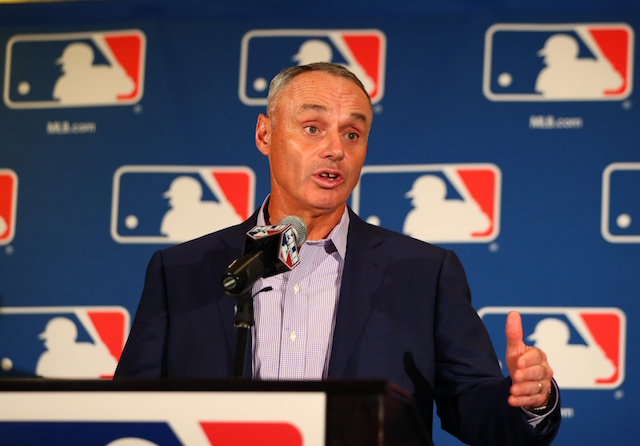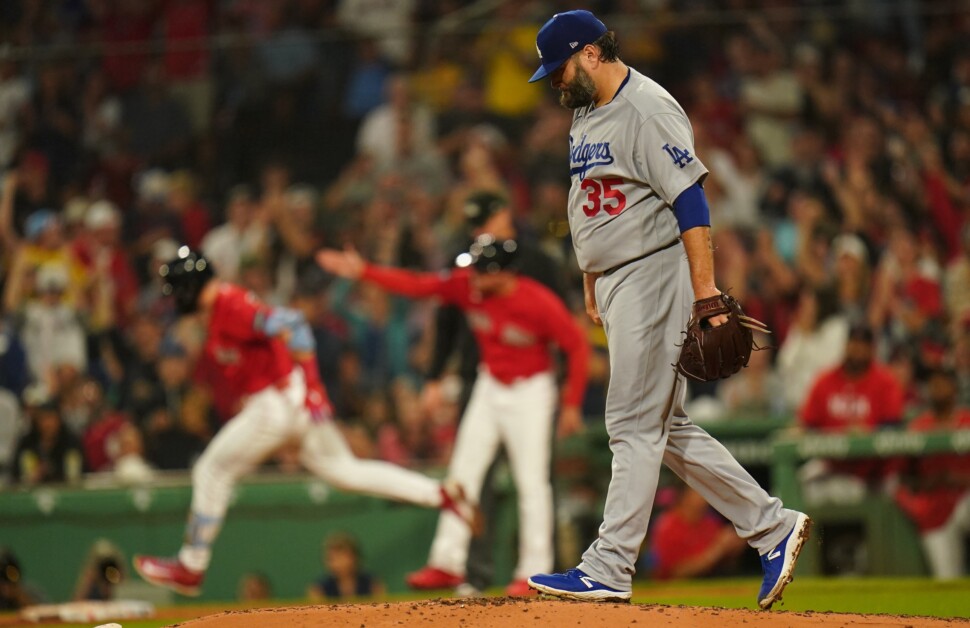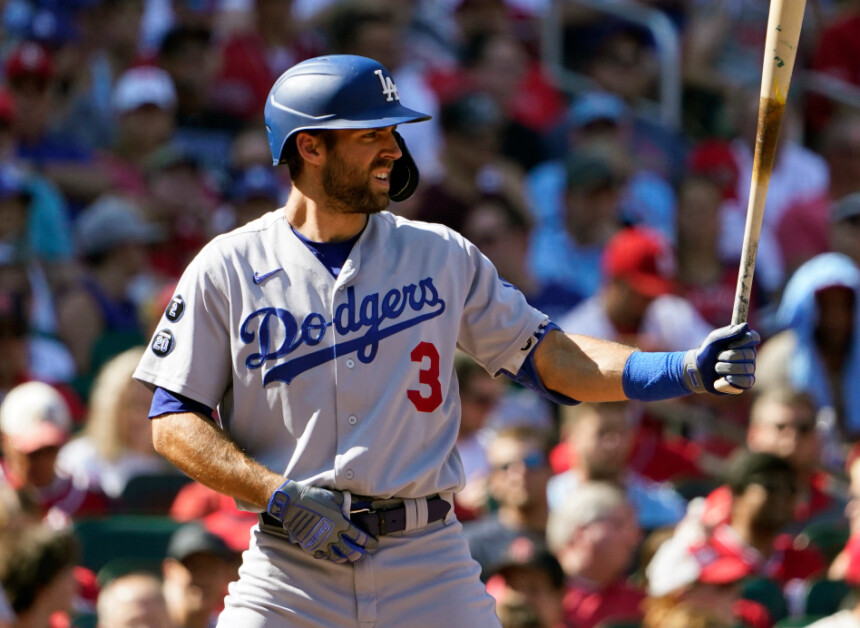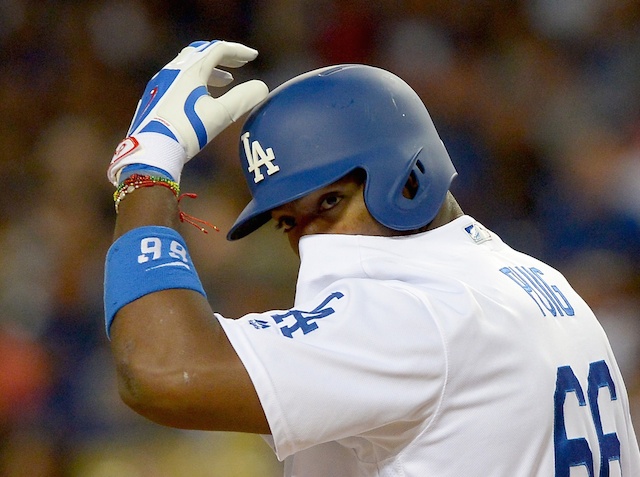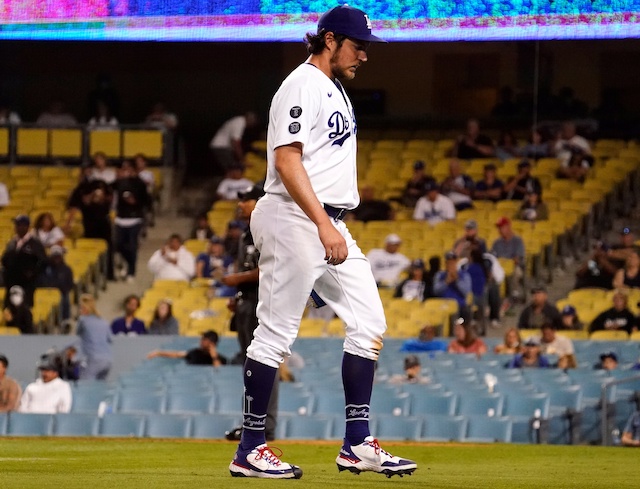A process that began under former commissioner Bud Selig and now championed by current commissioner Rob Manfred, improving the overall product of Major League Baseball has been at the forefront of conversations a handful of years running now.
Under Manfred’s direction, pace of play has become synonymous with any proposed and implemented rule changes. Manfred received plenty of backlash when reports surfaced that the rookie-level Gulf Coast League and Arizona League would test placing a runner on second base in each inning for games that go into extra innings.
Manfred later acknowledged it was a rule change that was unlikely to reach the Major League level. There have been general discussions over potentially banning shifts, which Manfred in some sense also walked back.
Above all, he’s focused on providing fans with an entertaining game, which isn’t necessarily pace-of-play related, Manfred explained to Bill Shaikin of the L.A. Times:
“Pace has gotten too much attention.” … “It’s one part of a really complicated, multi-faceted approach to ensuring the product we’re putting out there is the most compelling product possible.”
A clock to limit the dead time between innings has been in place for multiple seasons, and this year owners and the MLB players association approved eliminating the need to throwing four balls to complete an intentional walk.
Managers instead can simply signal from the dugout for an intentional walk, and the batter is immediately awarded first base. There were also changes to the replay review process this season.
Managers are now be limited to 30 seconds for a decision on whether they would like to request a replay. What’s more, umpires (replay officials) in New York have only two minutes to review a play. The Crew Chief retains the ability to decide if a play should be reviewed in the event a manager no longer has challenges available.
Whether potentially changing the strike zone, utilizing a pitch clock, or other changes, Manfred intends to continue the dialogue with the players association. However, he does retain the authority to unilaterally implement changes for next season.



